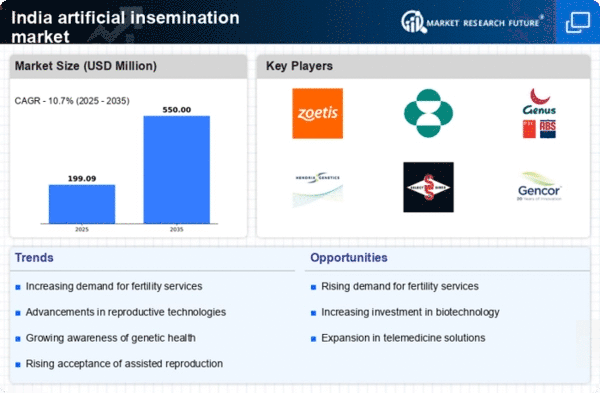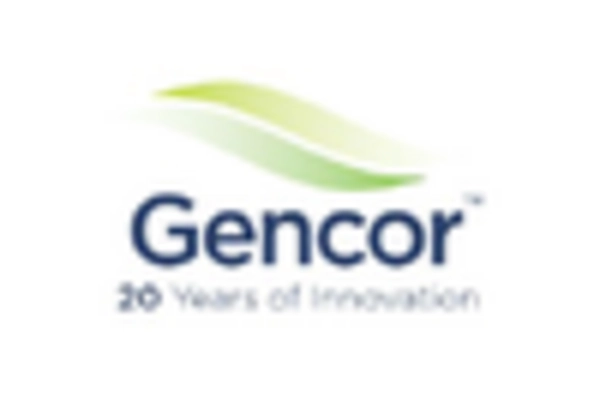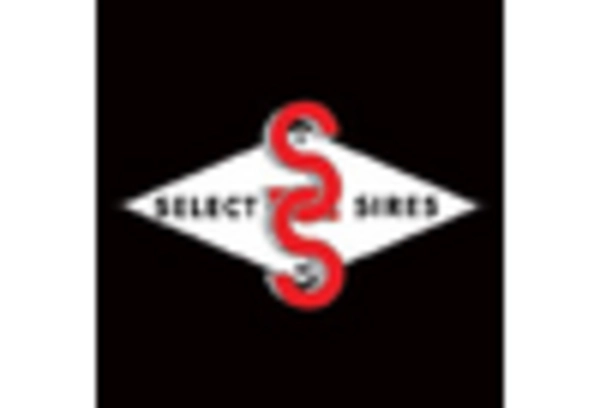Supportive Regulatory Framework
A supportive regulatory framework is emerging in India, which is conducive to the growth of the artificial insemination market. The government is implementing policies that facilitate the establishment of artificial insemination centers and promote best practices in animal breeding. This regulatory support is essential for ensuring the quality and safety of artificial insemination services. Additionally, the establishment of standards and guidelines for the use of reproductive technologies is likely to enhance consumer confidence in the market. As the regulatory environment becomes more favorable, it is expected that the artificial insemination market will experience increased investment and participation from various stakeholders.
Increased Awareness and Education
There is a growing awareness among farmers and agricultural stakeholders regarding the benefits of artificial insemination. Educational programs and workshops are being organized to inform farmers about the advantages of using artificial insemination for breeding superior livestock. This increased awareness is crucial for the artificial insemination market, as it encourages more farmers to adopt these practices. Furthermore, government initiatives aimed at promoting modern agricultural techniques are contributing to this trend. As more farmers become educated about the potential for improved yields and better livestock health, the market is expected to witness significant growth in the coming years.
Rising Demand for Livestock Products
The artificial insemination market is experiencing a notable surge in demand for livestock products in India. As the population continues to grow, the need for high-quality meat, milk, and other animal products is increasing. This demand is driving farmers to adopt advanced breeding techniques, including artificial insemination, to enhance the genetic quality of their livestock. Reports indicate that the dairy sector alone contributes approximately 4.6% to India's GDP, highlighting the economic significance of improving livestock productivity. Consequently, the artificial insemination market is likely to expand as farmers seek to meet consumer demands while ensuring sustainable practices in livestock management.
Advancements in Reproductive Technologies
The artificial insemination market is benefiting from advancements in reproductive technologies that enhance the efficiency and success rates of insemination procedures. Techniques such as sexed semen and embryo transfer are becoming more prevalent, allowing farmers to achieve desired genetic traits in their livestock. These innovations are likely to improve the overall productivity of the livestock sector in India. As a result, the artificial insemination market is poised for growth, with farmers increasingly adopting these technologies to optimize breeding outcomes. The integration of these advanced reproductive technologies is expected to play a pivotal role in shaping the future of livestock production in the country.
Rising Income Levels and Changing Consumer Preferences
As income levels rise in India, consumer preferences are shifting towards high-quality animal products. This trend is influencing the artificial insemination market, as farmers are motivated to improve the genetic quality of their livestock to meet these evolving demands. The increasing purchasing power of consumers is leading to a greater emphasis on premium products, which in turn drives the need for advanced breeding techniques. Farmers are likely to invest in artificial insemination to enhance the quality and yield of their livestock, thereby aligning with market trends. This shift in consumer behavior is expected to significantly impact the growth trajectory of the artificial insemination market in the near future.
















